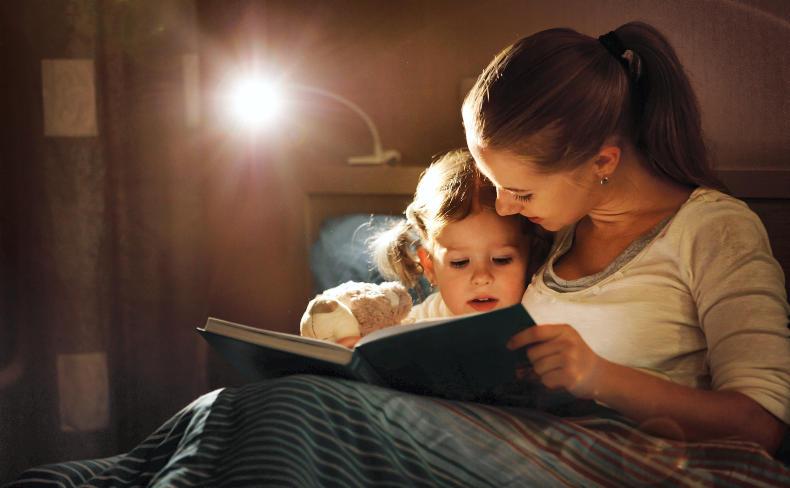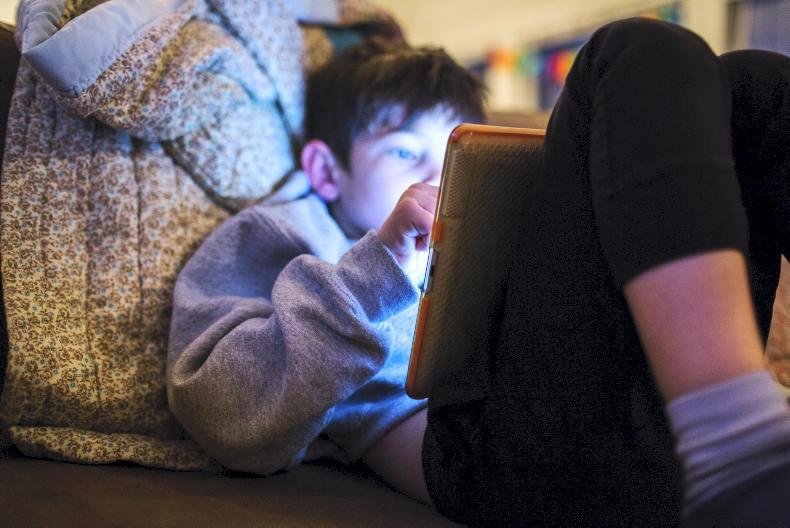Many families have lost a sense of routine since the start of COVID-19 and are looking for ways to restore it.
Research from Safefood revealed that 60% of parents expressed concern about getting their children back into a routine for school.
The research also showed an increase in behaviours which can lead to childhood obesity.
Behaviours
Since the beginning of COVID-19, these behaviours include:
43% of children are going to bed later and 44% are waking later each morning. As a direct result of children experiencing changes in their sleep routine, 49% are eating more unhealthy snacks or treats.54% are less active. 67% are engaging in more screen time. According to the agency, sleep is the cornerstone to health and wellbeing and its impact on a healthy lifestyle cannot be underestimated.
We know that poor sleep routines are associated with sedentary behaviour and research has shown that a lack of sleep is associated with being overweight and obesity, especially in younger age groups. Insufficient sleep duration is thought to increase appetite, desirability of unhealthy foods and lower physical activity.
Challenging
The research confirmed that parents have been finding a range of behaviours challenging to manage while children have been out of school, reporting difficulties in managing habits such as screen usage (55%), eating unhealthy treats and snacks (54%), getting regular exercise and activity (47%) and having a good sleep routine (52%).

Safefood START campaign to tackle childhood obesity due to COVID-19.
Chief specialist in nutrition at Safefood Dr Marian O’Reilly said: “Research shows that not getting enough sleep impacts on children’s health in many ways including increased risk of excess body weight.
"Sleep influences appetite hormones and being up for longer means there are more opportunities to eat, which can impact on their weight.
"Many parents have told us that they have found sleep, snacking, managing treat foods and other healthy behaviours difficult over recent months.
"A good sleep routine is the key to unlocking these challenges.”
To help get bedtime back on track, child and adolescent psychoanalytical psychotherapist Dr Colman Noctor offers the following sleep advice to parents:
Consistent bedtimes are at the heart of the routine to provide regularity and predictability that over time will help a child to self-regulate.Reduce screen time and sugary foods and drinks in the hours leading up to bedtime.Encourage physical activity and fruit and vegetables during the day. Encourage relaxation skills and wind down activities.Value sleep time within the family culture.The START campaign is a five-year public health awareness campaign from safefood, the HSE and Healthy Ireland.
The campaign is encouraging families to take the first step towards a healthier lifestyle for their children by supporting them with one daily win and to persist with the changes, no matter how difficult they become.
To find out more about the START campaign and ways to make a healthy, positive start visit www.makeastart.ie.
Read more
Food waste: the paradox of scarcity in abundance
Female entrepreneurship programme ACORNS open for applications
‘Sure you’d be in Spain for less’
Many families have lost a sense of routine since the start of COVID-19 and are looking for ways to restore it.
Research from Safefood revealed that 60% of parents expressed concern about getting their children back into a routine for school.
The research also showed an increase in behaviours which can lead to childhood obesity.
Behaviours
Since the beginning of COVID-19, these behaviours include:
43% of children are going to bed later and 44% are waking later each morning. As a direct result of children experiencing changes in their sleep routine, 49% are eating more unhealthy snacks or treats.54% are less active. 67% are engaging in more screen time. According to the agency, sleep is the cornerstone to health and wellbeing and its impact on a healthy lifestyle cannot be underestimated.
We know that poor sleep routines are associated with sedentary behaviour and research has shown that a lack of sleep is associated with being overweight and obesity, especially in younger age groups. Insufficient sleep duration is thought to increase appetite, desirability of unhealthy foods and lower physical activity.
Challenging
The research confirmed that parents have been finding a range of behaviours challenging to manage while children have been out of school, reporting difficulties in managing habits such as screen usage (55%), eating unhealthy treats and snacks (54%), getting regular exercise and activity (47%) and having a good sleep routine (52%).

Safefood START campaign to tackle childhood obesity due to COVID-19.
Chief specialist in nutrition at Safefood Dr Marian O’Reilly said: “Research shows that not getting enough sleep impacts on children’s health in many ways including increased risk of excess body weight.
"Sleep influences appetite hormones and being up for longer means there are more opportunities to eat, which can impact on their weight.
"Many parents have told us that they have found sleep, snacking, managing treat foods and other healthy behaviours difficult over recent months.
"A good sleep routine is the key to unlocking these challenges.”
To help get bedtime back on track, child and adolescent psychoanalytical psychotherapist Dr Colman Noctor offers the following sleep advice to parents:
Consistent bedtimes are at the heart of the routine to provide regularity and predictability that over time will help a child to self-regulate.Reduce screen time and sugary foods and drinks in the hours leading up to bedtime.Encourage physical activity and fruit and vegetables during the day. Encourage relaxation skills and wind down activities.Value sleep time within the family culture.The START campaign is a five-year public health awareness campaign from safefood, the HSE and Healthy Ireland.
The campaign is encouraging families to take the first step towards a healthier lifestyle for their children by supporting them with one daily win and to persist with the changes, no matter how difficult they become.
To find out more about the START campaign and ways to make a healthy, positive start visit www.makeastart.ie.
Read more
Food waste: the paradox of scarcity in abundance
Female entrepreneurship programme ACORNS open for applications
‘Sure you’d be in Spain for less’







 This is a subscriber-only article
This is a subscriber-only article










SHARING OPTIONS: